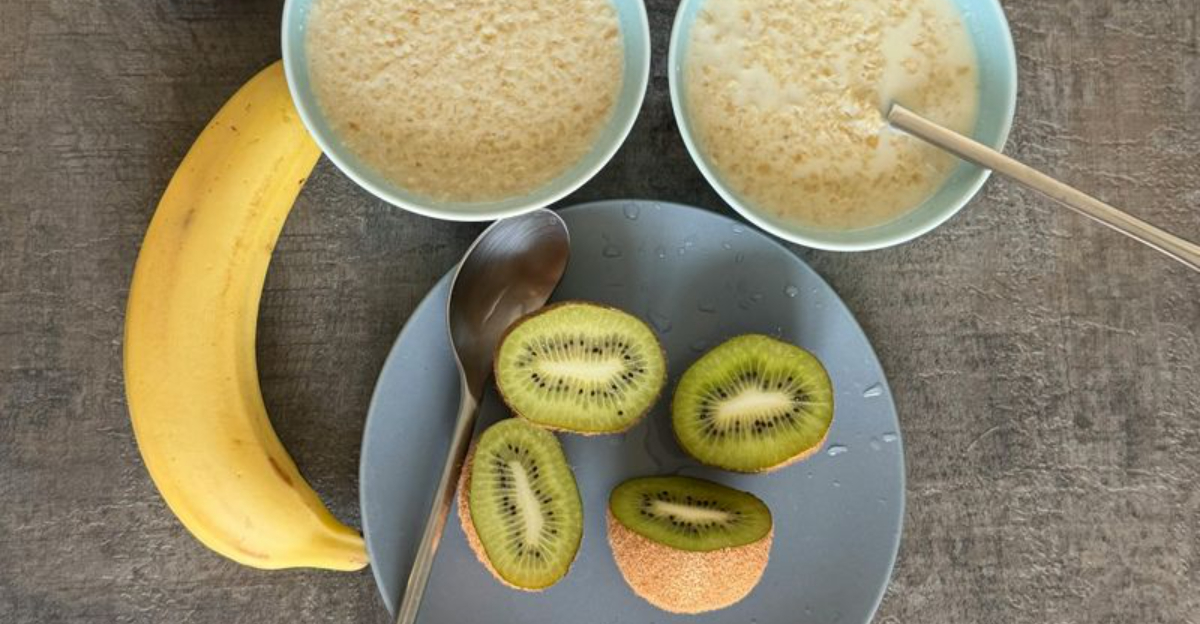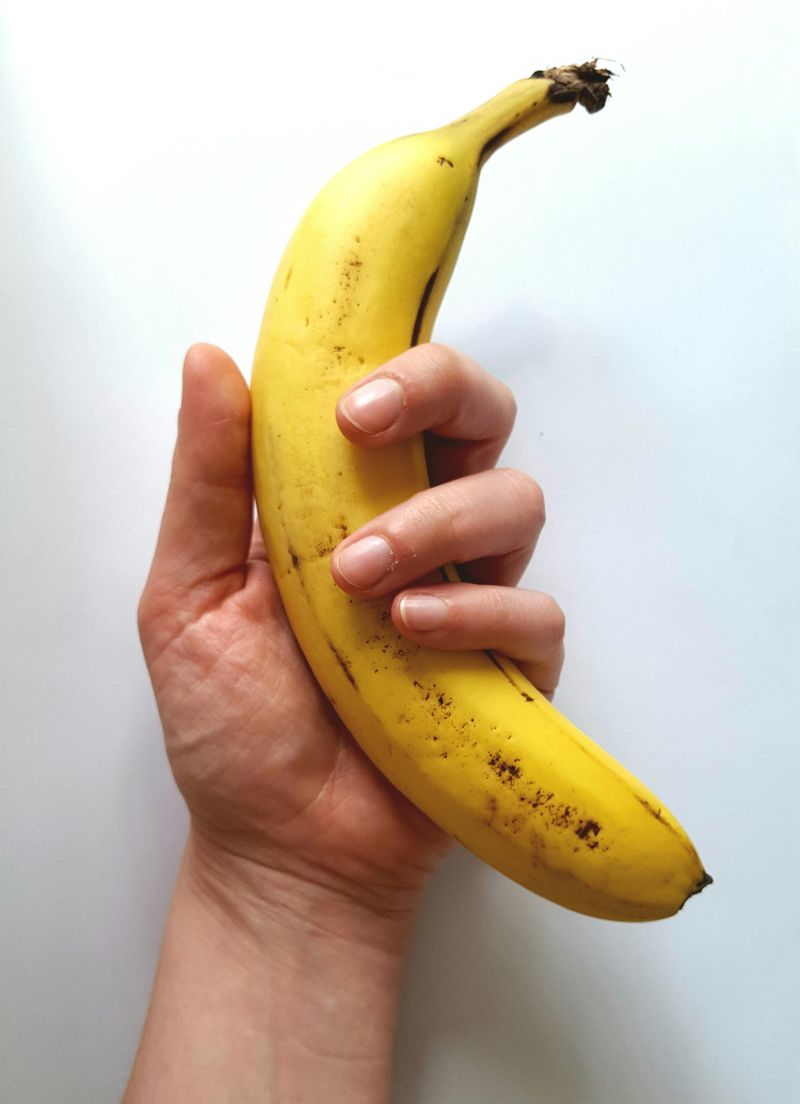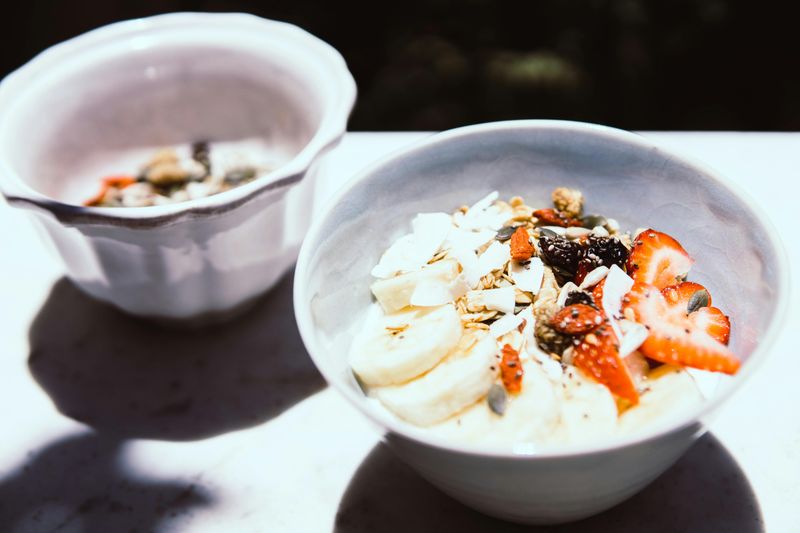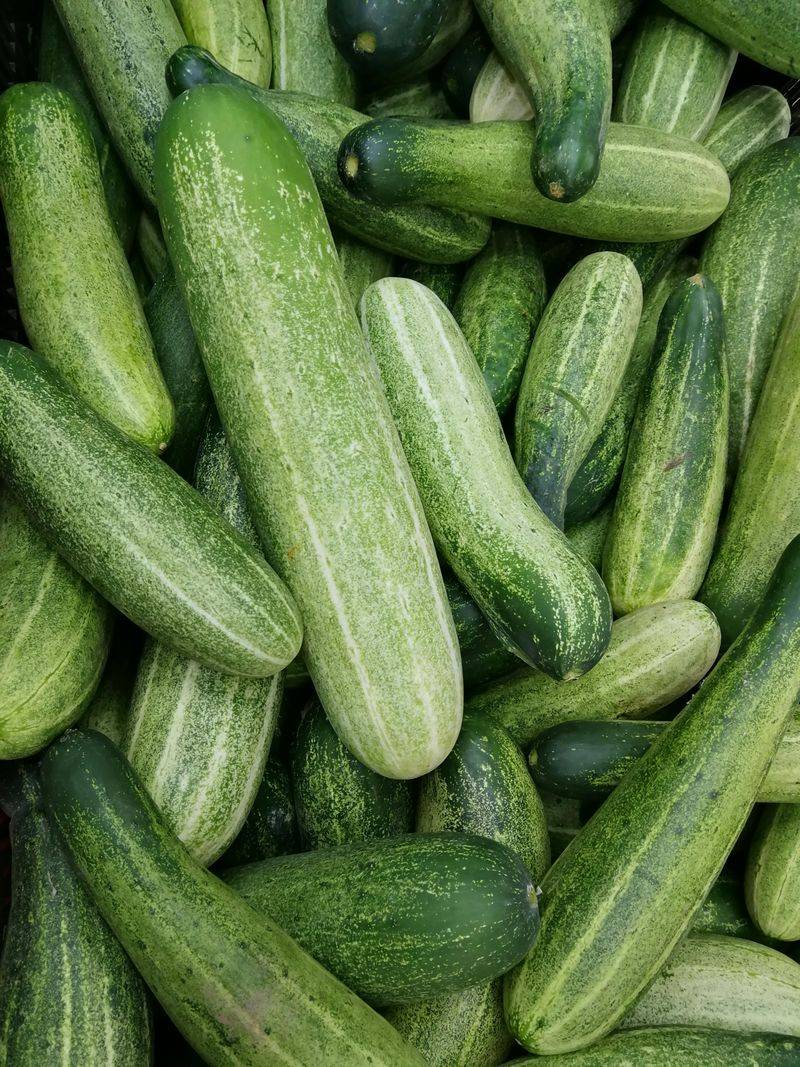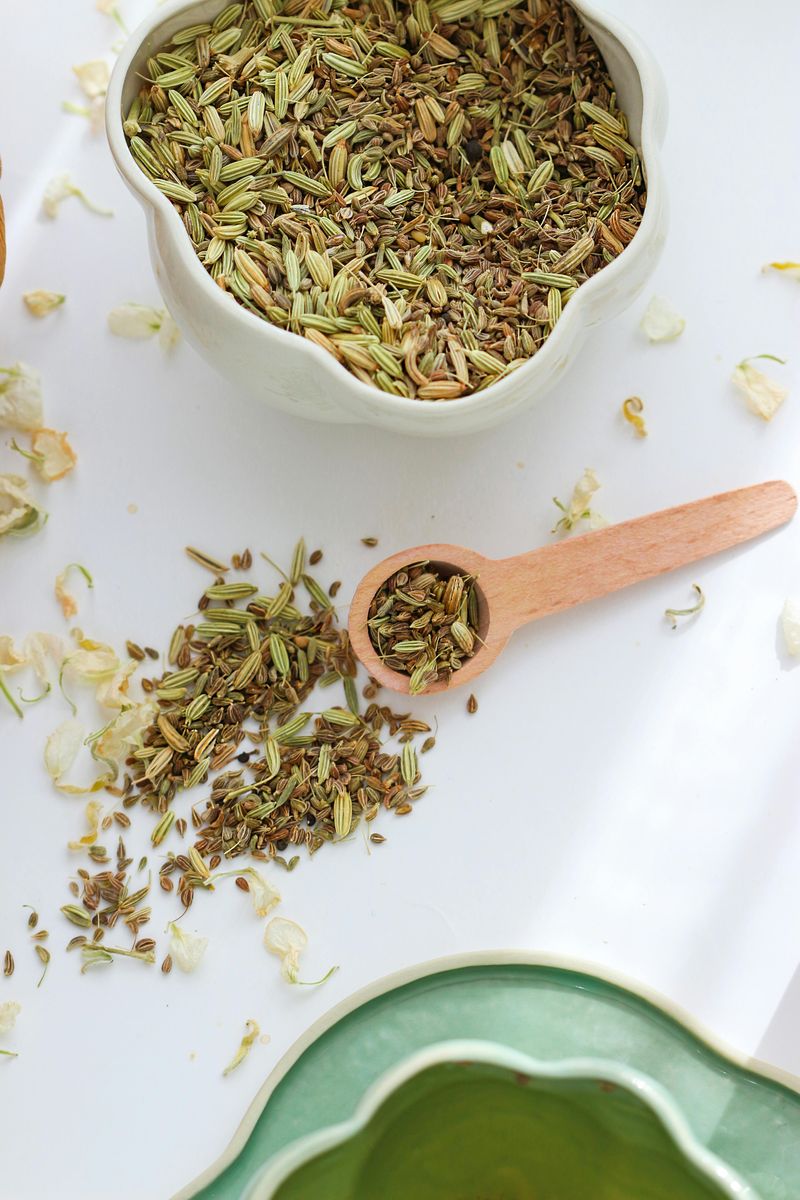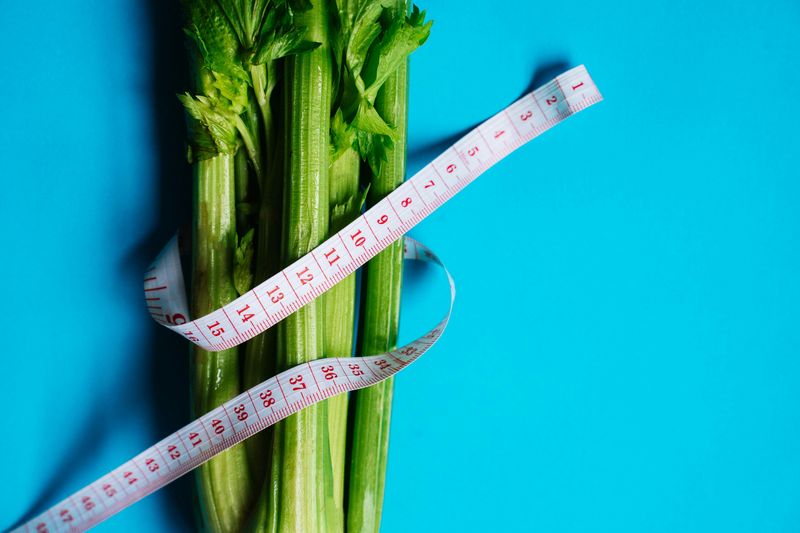Feeling uncomfortable after meals isn’t fun, and bloating can make your day pretty miserable. The good news is that certain foods can actually help your stomach feel better and keep your digestive system running smoothly. Whether you’re dealing with occasional puffiness or want to support your gut health, adding these foods to your diet might make a real difference in how you feel.
1. Ginger
This spicy root has been used for centuries to calm upset stomachs and ease digestive troubles. Ginger works by helping food move through your digestive system faster, which means less time for gas to build up and cause that uncomfortable bloated feeling.
You can enjoy ginger in many ways—add fresh slices to hot water for tea, grate it into stir-fries, or even chew on crystallized ginger as a snack. Many people find that sipping ginger tea after a heavy meal helps prevent bloating before it starts.
The natural compounds in ginger also reduce inflammation in your gut, making it easier for your body to break down food properly.
2. Bananas
Packed with potassium, bananas are like a secret weapon against bloating caused by too much salt in your diet. Potassium helps balance out sodium levels in your body, which reduces water retention and that puffy feeling around your middle.
Bananas are also loaded with fiber that feeds the good bacteria in your gut. When your gut bacteria are happy and healthy, they help digest food more efficiently and produce less gas.
Plus, bananas are super easy to digest themselves, making them a perfect snack when your stomach feels sensitive. Grab one for breakfast or slice it over yogurt for a digestion-friendly treat.
3. Yogurt with Probiotics
Did you know your gut contains trillions of tiny bacteria that help you digest food? Yogurt with live cultures adds more of these helpful bacteria to your system, creating a healthier balance in your digestive tract.
When you eat probiotic-rich yogurt regularly, these friendly bacteria help break down food that might otherwise cause gas and bloating. Look for labels that say “live and active cultures” to make sure you’re getting the real benefits.
Greek yogurt works great too, offering extra protein along with those gut-friendly probiotics. Have it for breakfast with some fruit or use it as a base for smoothies.
4. Cucumbers
Crunchy and refreshing, cucumbers are mostly water, which makes them perfect for flushing out excess salt and reducing bloating. Staying hydrated is actually one of the best ways to prevent water retention, even though it might sound backward.
Cucumbers also contain a flavonoid called quercetin that helps reduce swelling and inflammation in your digestive system. The high water content means they’re super gentle on your stomach while still providing important nutrients.
Snack on cucumber slices with hummus, toss them in salads, or add them to water for a refreshing drink. Their mild flavor makes them easy to include in almost any meal.
5. Papaya
This tropical fruit contains a special enzyme called papain that acts like a helper for your digestive system. Papain breaks down proteins in your food, making them easier for your body to absorb and less likely to cause gas buildup.
Papaya is naturally sweet and delicious, so eating it doesn’t feel like taking medicine even though it’s seriously helping your digestion. Many cultures have used papaya as a natural remedy for stomach problems for generations.
Try eating fresh papaya after meals, blend it into smoothies, or enjoy it as a light dessert. The fiber in papaya also keeps things moving smoothly through your intestines.
6. Peppermint
With a cooling sensation that feels soothing almost instantly, peppermint has natural oils that relax the muscles in your digestive tract. When these muscles relax, trapped gas can escape more easily, reducing that tight, uncomfortable bloated feeling.
Peppermint tea is probably the most popular way to use this herb for digestion, and many people swear by a cup after dinner. The menthol in peppermint also helps reduce inflammation and can ease stomach cramps.
You can chew fresh peppermint leaves, add them to salads, or use peppermint oil in cooking. Just remember that a little goes a long way with this powerful herb.
7. Fennel Seeds
These tiny seeds pack a powerful punch when it comes to fighting bloating and gas. Fennel has compounds that relax your digestive muscles and help push gas through your system instead of letting it build up and cause discomfort.
In many countries, people chew fennel seeds after meals as a natural digestive aid and breath freshener. The slightly sweet, licorice-like flavor makes them pleasant to eat straight or brewed into tea.
You can also add fennel seeds to cooking—they’re great in soups, roasted vegetables, or bread. Some people keep a small container of seeds handy to munch on whenever their stomach feels off.
8. Asparagus
Asparagus acts as a natural diuretic, meaning it helps your body get rid of extra water and salt that can make you feel bloated and puffy. This green vegetable is also loaded with prebiotics, which are special fibers that feed the good bacteria in your gut.
When your gut bacteria get the right fuel from prebiotics, they work better at digesting your food and producing fewer gas bubbles. Asparagus also contains folate and vitamins that support overall digestive health.
Roast asparagus with a little olive oil, steam it as a side dish, or chop it into omelets. Its slightly nutty flavor pairs well with almost any meal.
9. Pineapple
Juicy and sweet, pineapple contains bromelain, an enzyme that helps your body break down proteins more efficiently. When proteins are properly digested, they’re less likely to sit in your stomach fermenting and creating gas.
Bromelain also has anti-inflammatory properties that can soothe an irritated digestive system. Eating fresh pineapple is best because canned versions often lose some of the enzyme during processing.
Enjoy pineapple chunks as a snack, blend them into tropical smoothies, or grill slices for a unique dessert. The natural sweetness makes it a treat that happens to be incredibly good for your digestion, too.
10. Celery
Crisp and refreshing, celery is another high-water vegetable that helps flush out excess sodium and reduce bloating. The crunchy texture also means you’ll chew it thoroughly, which starts the digestion process in your mouth before food even reaches your stomach.
Celery contains a decent amount of fiber that keeps your digestive system moving along smoothly without causing gas buildup. Its natural compounds may also help reduce inflammation in your gut lining.
Munch on celery sticks with peanut butter, add chopped pieces to soups and salads, or juice it for a hydrating drink. Its mild flavor makes it incredibly versatile in the kitchen.
11. Oatmeal
Starting your day with a warm bowl of oatmeal gives your digestive system the soluble fiber it needs to work properly. This type of fiber absorbs water and forms a gel-like substance that moves smoothly through your intestines, preventing constipation and the bloating that comes with it.
Oats also feed beneficial gut bacteria, supporting a healthy microbiome that digests food efficiently. Unlike some high-fiber foods, oatmeal is gentle and unlikely to cause gas when eaten in normal amounts.
Top your oatmeal with bananas or berries for extra digestive benefits. Just avoid adding too much sugar, which can actually contribute to bloating.
